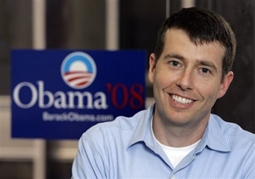
As I was preparing to speak with David Plouffe it occurred to me that Plouffe is the now legendary campaign manager who coached President Barack Obama in the fine art of answering sharp questions. There was no way I was going to get him to pull the goalie during our interview. There would be no accidental slips on his part, no spontaneous sound bites. The best I could hope for would be some polished insight into the mind of a man who will surely go down in history for having planned and executed one of the most poetic and historically relevant presidential campaigns in American history. The facts and chronology of how Barack Obama’s campaign unfolded are typed up in black and white in David Plouffe’s book (The Audacity to Win). That being said, I didn’t need the facts from Plouffe. I went after the emotional landscape behind the story.
When David Plouffe first met with Barack Obama in a private summit to discuss Obama’s possible run for the United States Presidency they were looking at a newly minted Senator with two best selling memoirs and one jaw dropping speech, circa 2004’s Democratic National Convention. As David Plouffe and his partner David Axelrod sized up their potential candidate they recognized his electric magnetism, his progressive ideals and precise vision. Even with Barack Obama’s unique resume, the three knew they would have a steep climb in getting over Mount Hillary.
The genius of David Plouffe was in his knowing. He knew that he couldn’t beat top Washington players like Hillary Clinton and John McCain without changing the way the game was played. By expanding the electorate and stumping un-chartered Democratic ground, David Plouffe helped Barack Obama change the political scope in ways that no insider thought possible, even as Barack Obama’s enigmatic energy swept from state to state.
David Plouffe has a youthful voice and boyish demeanor, and at first blush it is easy to forget how impeccably shrewd he is. He doesn’t fudge his way through topics he doesn’t fully comprehend, but he puts on no false modesty in his areas of expertise. I asked Plouffe about everything from the excruciatingly drawn-out primary race, to hurricane Sarah and the many scandalous darts thrown at Barack Obama as he descended closer and closer to the White House.
A student of human nature, I learned a good deal about David Plouffe during our interview. He is masterfully disciplined at staying on message, but even a master can sometimes erupt into casual laughter or feel compelled to share an unplanned anecdote.
PR.com (Allison Kugel): What is the greatest lesson that the average American can take away from the success of President Obama’s campaign?
David Plouffe: In a way that would apply broadly, it would be that you don’t have to be constrained by the past or by what others think is possible for you. You really can charter a new and different course, and if you have a combination of luck and skill and commitment you can be successful.
PR.com: Had there not been the climate that was created by George W. Bush could there have ever been a President Barack Obama at this time in our history?
David Plouffe: I think so, because I think that what people saw over two years was someone of enormous character, and tremendous leadership skills. I think that obviously timing is important in politics. I do think that people were looking to course correct in fairly major ways. But Barack Obama proved himself through a pretty grueling obstacle course over two years.
PR.com: When it came to the Iowa caucuses and the work you put in with staff and volunteers on the ground, was that a big gamble for you, or was that a no-brainer as far as you, David Axelrod and Barack Obama were concerned?
David Plouffe: We thought the only way to win was to win Iowa. In that way it wasn’t a gamble. It was a necessity. The gamble was betting that a number of people who have never attended caucuses before would turn out. And that played well. I write in the book that, that was what our strategy was predicated on. I think a lot of commentators in politics didn’t think it was possible, certainly to the degree we were able to do it. We were counting on people who had never been at a caucus before. We put our fate in their hands. That was a gamble and that certainly was something that defied convention.
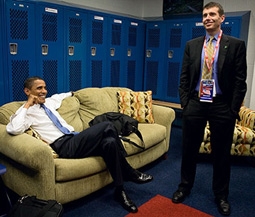
PR.com: What were the other campaigns’ reasons for not putting as much work into Iowa, specifically Hillary Clinton?
David Plouffe: Well I think she ended up spending as much, or more than we did and she appeared a lot, but we started organizing earlier because nobody knew who Barack Obama was, really, so we had to. We thought that Iowa was our make or break state. John Edwards spent even more time there than we did. I think Hillary Clinton perhaps got started there a little bit late. We organized every community in Iowa because we thought that to win we really were going to have to gain and build support in every corner of the state, and from unlikely sources. For instance, we organized every high school in Iowa. That had never been done before with the caucuses.
PR.com: There are so many incredible quotes in your book. It’s almost like an “Art of War.”
David Plouffe: (Laughs.)
PR.com: It can really be used for any business or organization, but I like where you said, and I’m paraphrasing a little, “How do you compete with a more established brand without taking their customers? You create new ones.”
David Plouffe: That’s exactly what we had to do, and by the way, Barack Obama wanted to appeal to people who had sort of checked out of politics or hadn’t been involved. But the truth was this was a necessity for us. We had to do this because we would not have been able to win Iowa with the people who would have normally turned out. And that became exactly what we did. And that’s what we did several times, in the general election as well. We were not going to compete with Coke-a-Cola, you know? We had to essentially commit people to try… well, I’ll leave the analogies alone (laughs)… but we had to get people who drink sports drinks or juices. We weren’t going to win the cola war.
PR.com: (Laughs). Throughout the book you describe creating a new paradigm for campaigning, which is very much off course with what the traditional political playbook would deem correct for a presidential campaign. And you say in your book, “Throughout the campaign we never stopped running into people who thought we were going about things the wrong way.” Were you ever scared to take this leap away from conventional wisdom?
David Plouffe: No. It really was something that defined our campaign and our success, was our will to do that. And when you do some things that are considered unusual and you succeed it gives you more confidence to keep doing them. In many ways it became kind of a badge of honor to charter off course, and it was hard to fight through skepticism. I don’t want to suggest that it wasn’t difficult. And it’s no fun when people say, “Hey. You guys don’t really know what you’re doing.” But we had learned enough over time to trust our instincts, to trust our judgment. Plus, we had a very clear sense of what our strategy was. I don’t think any organization can be successful unless you know exactly where you’re going so you can make decisions through that prism. And changing the electorate, by the way, was a big part of defying convention. A lot of people didn’t think it could be done, and it kind of treaded its way through out entire campaign.
PR.com: At the beginning of the campaign there was a lot of talk about Barack Obama not being as qualified or experienced as he should be. People even made comments about his age. That begs the question, what does qualify someone to be President of the United States?
David Plouffe: It’s judgment, vision, character. You have to have experience, but it’s not necessarily the length of Washington resume. I actually think Barack Obama, he had experience in Washington and that’s valuable. But he also had experience in the state legislature. He had experience organizing communities as a lawyer. So I actually think it’s kind of a range of experience. People are going to make their own judgment. The presidential campaign is a very transparent process. You really can’t hide who you are. People get to evaluate you. As [Barack Obama] would often say, “They get to kick the tires.” And they’ll make their own judgment about whether they think you’re qualified or not. But I think for a lot of people they thought, “Well he hasn’t spent much time in Washington, but they see that he’s got good judgment, he’s got a good intellect, and he seems to have a pretty good business [acumen]. Judgment trumps experience in most campaigns.
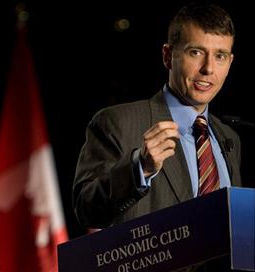
PR.com: Do you think that President Obama, having not spent an enormous amount of time in Washington, was actually something that worked in your favor during the campaign?
David Plouffe: Well that was something we had to fight through, because he got a lot of criticism for that. But I do think in this election that so many people were looking for fundamental change. The fact that he was not a creature of that place, I think for certain people it was [good]. For other voters the lack of Washington experience was an issue and they had to say, “Well, but he does have these other qualities.”
PR.com: Coming out of Super Tuesday you had read a February 10, 2008 article in the New York Post which proclaimed “Obama and Clinton are locked in a dead heat,” even after Barack Obama’s eleven consecutive wins. You then go on to say, “The moment marked a critical juncture in our strategy. At this point we needed to shed the mantle of ‘underdog’ and explain to the political community and the press where the race really stood.” Up until that point was the “underdog” strategy to placate Hillary Clinton’s ego, or was it more to create an atmosphere where people would underestimate Barack Obama, and perhaps not expect quite so much from him in the beginning?
David Plouffe: It’s because we were the underdog. The truth was we were an underdog. [Hillary Clinton] was such a strong front runner that we never argued with that description. Even when we won Iowa, all that did was give us a chance to win. Then we lost New Hampshire, and we clearly went back to underdog status. My point about the February 10th article and that whole time frame was we were moving into more of a period where we thought we were going to build a big delegate lead, and so the only way we could lose the election was if superdelegates moved en masse to her. So we had to explain to people that, in fact, while we’ve won a bunch of states and she’s won a bunch of states, we’ve opened up a very, very meaningful lead. And the more important thing I talk about was the article that The New York Times did. In terms of the political community, it really opened people’s eyes that wow, the race has fundamentally shifted.
PR.com: Tell me a little bit about the Superdelegate situation. During the campaign a lot of people were confused by it because it almost seemed like two separate races.
David Plouffe: This has never really factored into an election, because Kerry and Gore, they won pretty early. There’s elected officials and party leaders that are given a vote. They’re a delegate in our process. What was apparent was even when we opened up a meaningful lead over Clinton, and delegates are rewarded as a result of elections, neither one of us was going to be at the magic number. So you did need some number of delegates and superdelegates to push you over. Superdelegates are not awarded based on elections. You’ve got to go to them individually and ask them for their support. It was a very frustrating part of the campaign, just because we thought that the voters should make this decision. Those weren’t our rules so we had to live by them.
PR.com: Did you feel as though Clinton was trying to pull rank with superdelegates and kind of override what was really going on, as far as how people were voting?
David Plouffe: Not pull rank so much as that was clearly her avenue [to win]. What was interesting was that while the election became much more focused on the superdelegates we were still winning the superdelegate battle day after day in February, March and April pretty convincingly. They were trying to convince the superdelegates with the elect-ability argument. [Clinton] would say, “I’m more elect-able because I can put up with the Republican attacks, and I’ll do really well in Pennsylvania and Michigan.” And we said, “Well, we’re going to do fine in Pennsylvania and Michigan too, but we can put new states in play like North Carolina and Virginia.” So that was kind of the subterranean battle that was going on with the superdelegates.
PR.com: To what did you and President Obama attribute Hillary Clinton’s refusal to concede the Democratic nomination even as her odds were going from slim to none?
David Plouffe: She’s a fighter, and I think that she also felt some obligation. She had a lot of supporters out in the states, and she wanted to allow them to vote. I think that they were waiting around to see if we would implode in some way, but we never did. As frustrating as it was, we were really admiring of her because it’s hard when the odds are low to keep getting up every day and campaigning as well as she did. It was really impressive.
PR.com: One detail you mention from Barack Obama’s private meeting with Hillary Clinton towards the end of the primary race was that her campaign had requested, and I don’t know if you meant that her campaign had said it was a contingency to her giving you her support, but they had requested your help with paying off twenty million dollars of debt that they had incurred towards the end of their race. Is that what you were saying?
David Plouffe: No, not at all. She was very clear that she was not just supportive, but that she was all in. The election at that point was only five months away so we didn’t have a lot of time to waste, and she was great in that way. She basically said, “Let me know what I can do.” But they clearly wanted a lot of help. We did what we could do and I think there was a belief that we could do it a lot more easily than we did. But one of the things I wanted to do with the book was, there was a little bit of a sense that in June and July leading into the convention, that things were tense between us. But honestly they weren’t. Everything went really well and I give her a lot of credit for that, because she clearly sent a message to her whole organization that we didn’t have any time to waste here. We’ve got to help.
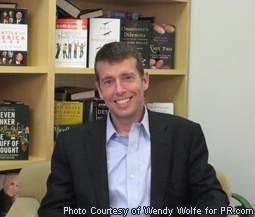
PR.com: It seems that she is very well suited to her current position as Secretary of State. Have you heard at all through President Obama or through the grapevine how she feels about her position?
David Plouffe: I haven’t. I’ve obviously read that she loves what she’s doing and feels like she’s providing real value, which I think she is. But I have not heard anything, personally.
PR.com: Was Bill Clinton’s presence the reason that Joe Biden was chosen to be Vice President over Hillary Clinton?
David Plouffe: No. [Obama] chose Biden. He did really think about Hillary Clinton. There was a sense that he hadn’t and I think the fact that he picked her as Secretary of State is indication of how strongly he wanted her to be a part of his team. But, no, no he picked Joe Biden on the merits because he really thought that [Biden] would be a terrific counselor in the Presidency, and [Biden] is someone who has a lot of experience, and who is not afraid to offer his opinion and the President values that.
PR.com: Personally speaking, I know your wife was expecting a baby, and that Michelle Obama also at times had a hard time with her husband not being around. Did you and President Obama ever commiserate about missing family and wanting to be at home?
David Plouffe: Oh sure. We would talk a lot about that. I traveled with him a couple of weeks ago and one of the things he said was that he’s so happy, because unlike during the campaign he gets to see his family every night. We talked a lot about that and the toll it was taking on our families. There were moments where we wanted to win the election, but we also wanted it to be over (laughs) so we could see our families again.
PR.com: How did you recharge each other’s batteries in those moments?
David Plouffe: It’s not a recharging thing because I think that he and I and the senior team, we were very matter-of-fact. There are no short cuts, and the minute that he began to think about daylight… in fact, I write in the book, it’s almost better not to glimpse reality in a campaign - people going to a movie or people having coffee outside in the middle of the day - because you can’t do that. So it wasn’t a matter of recharging batteries, because you’re in the middle of a war, so to speak. You’ve just got to keep your head down.
PR.com: Moving into the general election you say that you felt some anxiety about John McCain’s reputation as a Washington maverick because it could have compromised or watered down Barack Obama’s platform as somebody who is not politics as usual. Did you feel that you needed to strategically dismantle McCain’s reputation, and make him appear to be more “establishment” to better serve your campaign?
David Plouffe: Not necessarily. I think that what did divide the election became the economy. I think that McCain never really separated from Bush on the economy and that caused him big problems. And I do think that McCain for awhile was trying to make the case that he was a change agent. But listen, when you are the last man standing supporting Bush’s Iraq strategy, and when you’re supporting him on the economy it’s hard to make the case that you’re a change agent, even if you had a few votes here and there that were independent. We weren’t going to say McCain has never shown any independence because that just wouldn’t be authentic. I think Bill Clinton did a good job of this in his speech in Denver. He basically said, “You know, John McCain has from time to time opposed his party and we should salute him for that. But on the core matters of this election, foreign policy which goes with Iraq and diplomacy, as well as the economy, he has not been independent.” And that’s the frame we tried to really shoot to.
PR.com: Was John McCain caught in a catch 22 where in order to gain the support of his party he had to back some of Bush’s policies, and then when he tried to change gears during the general election he got stuck in neutral? Is it fair to say that is what happened to him?
David Plouffe: I would never pretend to be an expert in Republican primary strategy, so I don’t know. I do think that because he seemed to veer to the right and then tried to go back a little bit… one of McCain’s strengths was that people didn’t think he did that sort of thing; that he’s a principled guy, and he didn’t act out of a political need all the time. That dynamic hurt him, as did Palin because people thought [she] was a political pick.
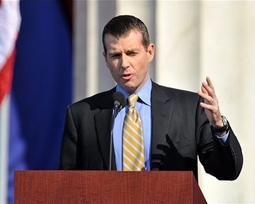
PR.com: Before John McCain tapped Sarah Palin to run alongside him for Vice President, who were you gathering research on? Who was on your shortlist of possibilities?
David Plouffe: We gathered it on a lot of people. She was one of them. But by the end there, we assumed it was going to be [Mitt] Romney, [Tim] Pawlenty or Joe Lieberman just because those were the ones that were being talked about the most.
PR.com: Do you think that Sarah Palin should have declined the Republican Vice Presidential nomination based on her lack of knowledge and expertise in certain areas?
David Plouffe: No, listen this was John McCain’s responsibility. He picked her and you’re going to serve your party and presumably try to serve your country, so no. Undecided voters never talked about Sarah Palin just in terms of, “I don’t think Palin’s ready,” or “I was bothered about her answers on a question.” They would always bring it back to McCain. They’d say, “What does that say about McCain that he picked her?”
PR.com: Do you think that the Republican Party takes Sarah Palin seriously, or do you think that in some ways she is being used by the party?
David Plouffe: There’s certainly an element of the Republican Party that doesn’t just treat her seriously; she’s kind of a rock star. Not all Republicans. There’s a wing of the party. I think it’s the Palin, Limbaugh, Beck wing of the party where she is just highly popular.
PR.com: Do you think Sarah Palin’s new book will give her any kind of political leverage? And how do you see her political career playing out over the next three to four years?
David Plouffe: I assume that her book is going to be a phenomenon and she’ll be in demand out there, and she’ll have to make a decision about whether she runs (referring to a possible Presidential campaign in 2012). I do think that if the energy in the Republican Party is in the kind of Palin, Limbaugh, Beck wing, I think long term that is damaging for their party. Ultimately, I don’t think that’s a very welcoming situation for moderates. But I’m sure the book tour will be a phenomenon and you’ll see that in a certain segment of the Republican Party there’s fanatical devotion to her.
PR.com: Things got pretty heated towards the end of the general election. John McCain and Sarah Palin were pretty relentless in trying to paint a picture of Barack Obama as everything from a Muslim extremist to someone who consorts with terrorists, and a racist citing Bill Ayers and Reverend Jeremiah Wright. At one point they even harped on Barack Obama’s middle name. Did these allegations ever hurt or embarrass the President on a personal level?
David Plouffe: McCain never said any of this. These were people at events, but there was an ugly period where really vile and inaccurate stuff was said. It was very heated out there. I give McCain credit for this because he tried to settle it down a bit. But I think voters thought that this is not what the election is about. The election is about my job and my healthcare, and foreign policy. So I think it was something that was probably politically harmful to them, because it was a pretty ugly scene.
PR.com: But did President Obama ever come to you and express that it hurt him or was getting him down, personally speaking?
David Plouffe: No, not at all. Politics is tough. You have to expect that.
PR.com: Was Rahm Emanuel your pick or your recommendation for White House Chief of Staff?
David Plouffe: Well, it was, but the only recommendation that matters was Barack Obama’s to himself. I certainly thought that Rahm was unique, and that he had a set of skills that no one else had. We were clearly going to be dealing with monumental challenges and I couldn’t think of anybody in his zip code, really, in terms of their ability to do this. He obviously had a leadership position in the Congress, he’s got two kids and this was a very, very selfless thing he did in my opinion. And I think he is doing a remarkable job. I can’t think of anybody else who could be holding up as well as he is with the economy and healthcare and Afghanistan, and he’s just doing a great job.
PR.com: Can the President succeed in Afghanistan by increasing our number of troops, or would that be setting the situation up to be another Iraq in your opinion?
David Plouffe: I’m not a foreign policy expert and I’m not really involved in these discussions so I won’t comment on that. I have confidence in the process that it’s thorough and rigorous, and it’s multi-dimensional, and he will obviously come to a judgment after a lot of consideration and discussion.
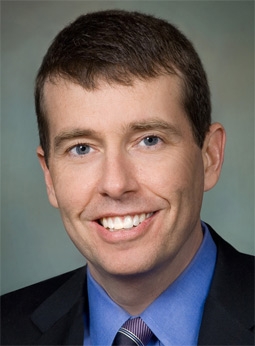
PR.com: What are your thoughts on President Obama’s healthcare bill? How do you see things playing out this month and into December in the Senate?
David Plouffe: I have a lot of confidence that we’re going to finally have health insurance reform after a hundred years. There will have to be a lot of back and forth and compromise, but I think this is a moment we can’t let pass. It’s largely going to be done by Democrats. Hopefully we’ll have a few Republicans by the end. My view is we can’t complain about that. We were elected to lead and we have to lead. Health insurance reform is so critical to fixing our economy long term.
PR.com: Are you on board for the 2012 election? Has that been discussed at all?
David Plouffe: The last one just ended a year ago (laughs) so there will be plenty of time for politics a couple years down the road. I think it goes without saying the any of us who helped him last time are going to help him again, but when that is and what that is, there will be a time for that but it’s not now.
David Plouffe’s book, “The Audacity to Win,” is now available through Penguin Group (USA)/Viking Imprint, at Amazon.com and at bookstores nationwide.
For information and tour dates visit davidplouffe.net.
